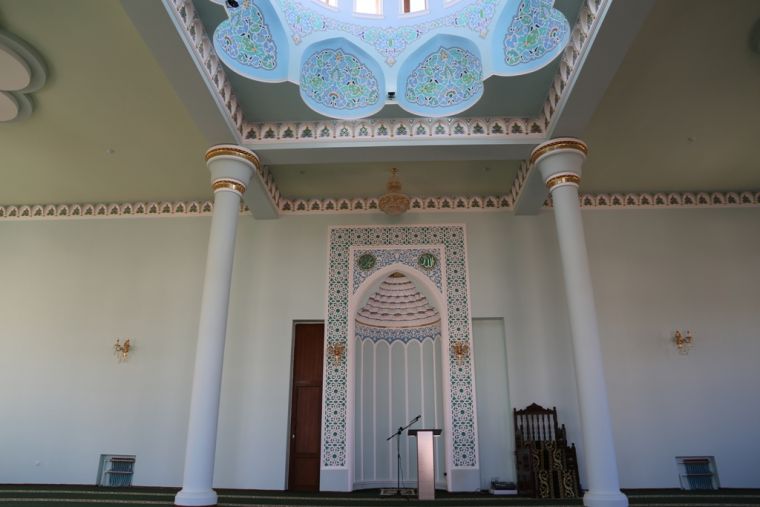Tashkent city



Much efforts are being done to deliver the true and pure essense of Islam in our country. One of such actions was done in Pskent district last year when Usmankhan Alimov, the Chairman of Muslim Board of Uzbekistan and Khayrulla Turmatov, Chief Imam of Tashkent region put initial bricks to build the mosque “Usmat Ota”.
The capacity of the newly built mosque is 250-300 people and in the nearest future the construction of library, museum and parking lot are expected to be raised in an adjoining area.
In his speech Muftiy Usmonkhon Alimov congratulated muslims with this historical event. Later the guests were invited for a lunch organized by Akromov, District Mayor.
Another new mosque has been opened in Kuksaroy neighborhood, Okhangaron district, Tashkent region. The mosque “Islom nuri (Light of Islam)” is located just on the side of the highway of Kamchik mountain highway pass.
The opening ceremony was led by Muftiy Usmankhan Alimov, who in his speech expressed warm wishes to worshippers and made genuine prayers.
Press Service,
Muslim Board of Uzbekistan

The Fergana regional branch of the "Vaqf" Charity Public Fund has successfully organized a comprehensive humanitarian initiative to support 200 underprivileged families throughout the region.
In a dedicated effort to ensure these households are well-prepared for the winter season, the Fund distributed essential supplies including coal, electric heaters, warm clothing, and footwear.
Furthermore, families received vital food packages and various household appliances to improve their daily living conditions. Alongside these material contributions, a special charitable dinner was hosted for children from families who have lost their breadwinners, made possible through the generous support of local sponsors.
This initiative reflects the "Vaqf" Fund's ongoing commitment to social welfare and providing a helping hand to those most in need within our community.